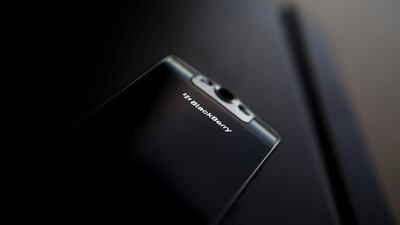BlackBerry, the Canadian firm that helped to pioneer the smartphone market, said on Wednesday it will stop making handsets, outsourcing production to an Indonesian partner, after it reported another loss and a steep decline in revenue.
Analysts had been holding their breath for the news after the chief executive John Chen said September was his deadline for making the chronically money-losing device business profitable. BlackBerry’s device business, which it calls “Mobility Solutions”, will focus on developing applications and an extra-secure version of Google’s Android operating system that it can licence to other companies.
“Our new Mobility Solutions strategy is showing signs of momentum, including our first major device software licensing agreement with a telecom joint venture in Indonesia,” Mr Chen said. “Under this strategy, we are focusing on software development, including security and applications. The company plans to end all internal hardware development and will outsource that function to partners. This allows us to reduce capital requirements and enhance return on invested capital.”
Handsets with the BlackBerry name will be produced under licence by Tiphone Mobile Indonesia, allowing BlackBerry to concentrate on software and services, the firms said.
BlackBerry posted a 31.8 per cent fall in second-quarter revenue. The firm’s net loss came to US$372 million, or 71 cents a share, on revenue of $334m, as it booked $147 million in charges from its reorganisation.
A year ago, it reported a profit of $51m, or 24 cents a share, on revenue of $490m.
Excluding one-time items, the company said it said broke even. On that basis, analysts had on average expected an adjusted loss of 5 cents a share on revenue of $393.7m, according to Thomson Reuters I/B/E/S.
The company raised its adjusted earnings outlook for the year to a range of breakeven to a 5-cent loss, compared with an earlier forecast of a 15 cent loss, after refinancing its debt and as margins improved.
The company’s shares rose 6.7 per cent to $8.35 in premarket trading. BlackBerry, which a decade ago was among the largest smartphone makers, has seen its global market share slip to less than one percent amid domination by Apple and Android devices.
As the market shifted, BlackBerry has sought to refocus on software, including security applications, and the latest announcement takes the company out of the handset market entirely.
“We are reaching an inflection point with our strategy. Our financial foundation is strong, and our pivot to software is taking hold,” said Mr Chen.
business@thenational.ae
Follow The National's Business section on Twitter

